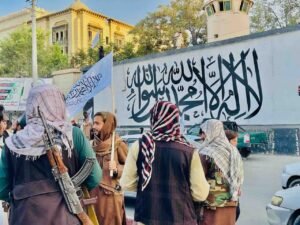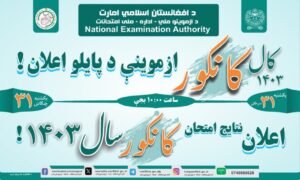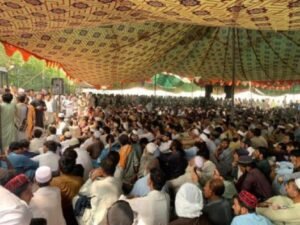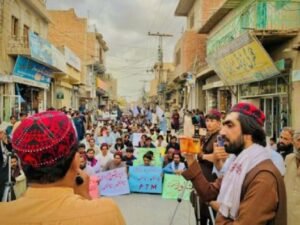A Degree of Controversy: Mullah Exams Spark Concerns in Afghan Higher Education
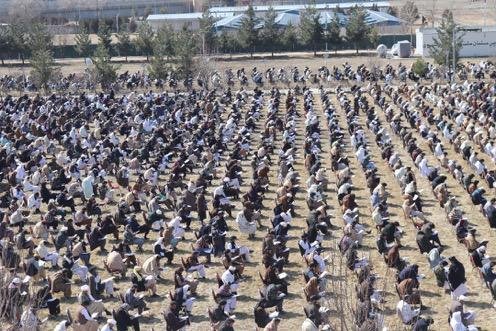
Mullahs undergo exams conducted by the Taliban's Ministry of Higher Education. Photo: @AfghanistanMoHE.
By Ilhamuddin Afghan
A recent large-scale examination organized by the Afghan Ministry of Higher Education (MoHE) aiming at awarding master’s degrees to over 50,000 mullah’s (clergies) has ignited a firestorm of controversy.
The majority of the participants originated from institutions like Peshawar Akora Khattak, Haqqania, and other madrasas in Pakistan and Afghanistan, marking a pivotal moment for higher education in the country.
The very administration of the exam raises serious questions. The National Examinations Office, a body established under the previous government and responsible for overseeing all such evaluations within the MoHE, was bypassed. This unilateral action by the Taliban-appointed Higher Education Minister has sparked discontent within the ministry itself.
Furthermore, sources within the MoHE reveal a troubling lack of due diligence. Biometric verification and scrutiny of madrasa credentials were reportedly absent, casting doubt on the eligibility of many participants.
Experts believe that the potential impact of this move is equally worrisome. These newly minted graduates might find themselves employed in various MoHE departments, including Sharia and Islamic science faculties. They could even replace current faculty members. While some claim advanced degrees from prestigious universities, concerns linger around the suitability of their education for Afghanistan’s curriculum.
Shamsuddin, a former professor at Kabul University’s Faculty of Islamic Sciences, highlights the chasm between traditional madrasa education and Afghanistan’s established curriculum. He emphasizes the crucial reforms undertaken over the past two decades to bring Afghanistan in line with global and regional educational standards.
“In academia, each discipline follows its specific curriculum, which is contextualized within the framework of religious values and cultural norms, both globally and regionally. While these mullahs have been educated in religious studies within madrasas, they may lack understanding of the subjects included in Afghanistan’s curriculum,” said Shamsuddin.
This disregard for established procedures and a focus on expediency undermines the pursuit of academic excellence.
“Regardless of the Taliban’s actions, their conduct and demeanour may be laughable, but the behaviour within academic circles falls short of standards,” An anonymous professor at Herat University said.
“The current regime represents a system of persecution, undermining the integrity of academia. Such behaviour of the Taliban lacks legitimacy and will not withstand scrutiny. In the face of a more robust system, certificates and diplomas issued in such a manner will hold no legal standing.” he added.
This situation underscores the critical need for strong governance and oversight within Afghanistan’s education sector. Replacing established systems with shortcuts not only threatens the credibility of academic institutions but also jeopardizes the future of higher education in the country.
As Afghanistan grapples with complex socio-political issues, safeguarding the integrity of its educational system remains vital to creating a prosperous and equitable future for its citizens.
Ilhamuddin Afghan is a university professor based in Afghanistan.
Note: The contents of the article are of sole responsibility of the author. Afghan Diaspora Network will not be responsible for any inaccurate or incorrect statement in the articles.

